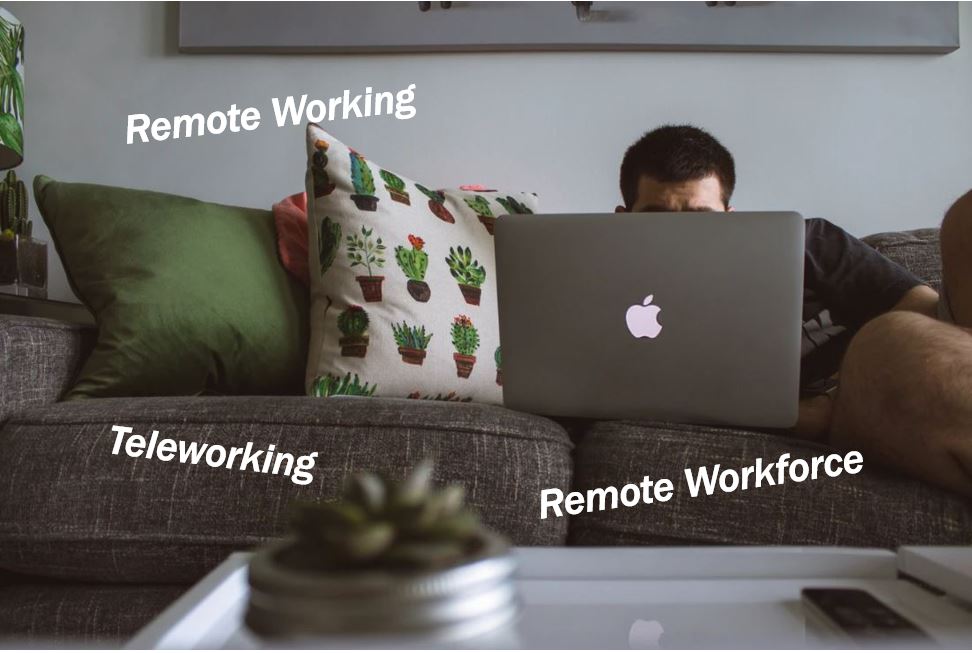If the internet hasn’t rendered offices completely unnecessary, it sure has been making the case that physical workplaces are much less essential than once believed. With remote working tools, collaborative software, and co-working communities rapidly gaining in popularity, the argument is being made that organizations, teams, and individuals are more than adept at being productive without sitting in the same room or even the same building.

Remote working only for some jobs
Of course remote working isn’t possible for everyone. Those in the healthcare, retail, and food and drink sectors will always rely–to some degree–on centralized physical workspaces. But for years now, a growing number of companies are learning how easy it is–and how effective it might be–to convert all or at least some of their business to remote operations. And in light of Covid-19, when even those less enthusiastic about instituting remote working have been forced to give it a shot, there’s a chance we’ll see even more evidence of its advantages once data has been collected and analyzed.
Not only does remote working save valuable money on office space and utilities, but research shows it also increases productivity. After all, the time employees save commuting to work, socializing in the office, and attending non-essential meetings can be better used on vital projects. And that’s to say nothing of the fact that working remotely allows each employee to organize their day to optimize their productivity, meet their own workflow, and capitalize on their best working practices.
The Case for Remote Working
Employers have long resisted allowing their employees to work remotely, and the reasoning seemed obvious: that less oversight would lead to decreased productivity, more autonomy would lead to laxness, and the absence of in-office activity would be a detriment to communication.

Poll
A 2016 Gallup poll, however, shows that despite what seem like obvious pitfalls, allowing employees to work remotely is not only not a risk – but in fact is often beneficial.
According to Gallup, remote working not only increases productivity and success, but is also a factor that attracts the best talent.
“Remote work not only improves outcomes and employee branding,” the poll suggested, “but is a policy that the most talented employees desire.”
Performance improves
The Gallup poll goes on to argue that there are many aspects of remote working that positively impact a company. For one thing, despite common wisdom, employee flexibility actually increases performance.
Better engagement
“Engagement climbs when employees spend some time working remotely,” the article says, though on the basis that the ideal situation would include a combination of remote and on-site work. “The optimal engagement boost occurs when employees spend 60% to 80% of their time working off-site –or three to four days in a five-day workweek.”
Gallup argues that employee engagement is directly related to productivity, and that data shows that remote working increases engagement.
“It’s probable that, between the higher engagement and increased productivity of remote work, off-site workers offer leaders the greatest gains in business outcomes.”
Remote working attracts talent
Finally, Gallup explains that a remote-working policy is now seen as a workplace perk that draws more, and therefore better, employees to apply. According to the poll, 54% of office workers would leave for better positions if a company offered them more flexible scheduling.
Keep in mind, this poll was conducted pre-Coronavirus. Now that workers have gotten a taste for remote working and experienced how it optimizes their time and productivity, it’s likely that even more employees will see remote working or flexible scheduling not as a perk but as a natural part of the job. The question is, will employers agree?
The Workplace and the Economy
There’s no doubt that remote working has been critical for companies who can utilize it during the Covid-19 crisis. But that’s no guarantee that businesses will survive.
Small businesses, especially, may be struggling to adapt to the options available to them. While free services like Zoom and Google Drive may help them communicate with employees from afar, some of the more critical software, such as project management tools, could be an investment they’re not equipped to fit into their budgets.
Loans
In addition to government programs, many small business owners are taking out loans in order to retain cash flow and keep their companies afloat. The best short term loans can help business owners see an influx in cash that they can use for project management and remote working tools. But is it worth it?
Employees may expect remote working options from now on
It’s difficult to say. One thing is for certain, though. After employees start returning to their offices, they’ll be doing so with more awareness about how their time and schedules can be optimized for productivity. A Harvard Business Review study aptly surveys the pitfalls of remote working, and ultimately offers solutions and the endorsement that remote working has more benefits than commonly believed. As Gallup argues, employees may start demanding more flexible remote working schedules, or else seeking companies that offer them.
Nobody can predict what the world will look like post-coronavirus. But business owners should understand how, despite common wisdom, remote working is beneficial to productivity and success. Because even if they don’t, their employees certainly will.
________________________________________________
Interesting related articles:

